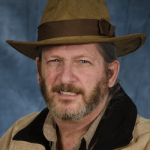A guest post by Scott Eder.
As we boldly step forth into a new year, it seems only natural to reflect on the past to plan for the future. 2013 marked a huge milestone for me—the sale and publication of my debut novel, Knight of Flame. It was an amazing experience awash in Awesome sauce. From the editing to the cover art to the initial promotion to the… all of it really, I loved the whole affair. Too much, really. From writing blogs and interviews for virtual book tours, answering comments, and researching new places to write blogs and interview, I let the process consume me and lost valuable writing time greasing the promotion machine. Happily, I might add. It was a choice I made. Everything’s a choice. Now I have to make up for lost time.
Social media is a drug, and I became an addict. “Did I just get a new review? Did someone just add KOF to her to-be read list? Oooh, I got mentioned in a tweet!” Each and every screen refresh brought something new. Even the angry chibi version of Dean Wesley Smith (see the red pound sign on his cheek?) in the back of my brain shouting that the best promotion is my next book didn’t pull me out.
You know what woke me up? Hearing Ryan Seacrest count down to the New Year and knowing that I hadn’t finished my next book. Crap.
So here we are. 2014. I have a lot to do. I’m not going to bore you with my laundry list of projects and how I’m going to get them done. Suffice it to say, I have a lot of work on my plate. What I want to stress is priority. Set your daily priority and stick to it. Here are my priorities:
1. Family—first and foremost. Without them, nothing else is possible. Nothing else matters.
2. Writing—develop new opportunities.
- Write new words.
- Edit old words.
- Outline next story.
3. Promotion—expand reach of author brand.
- Blogging: new content for Mad Muncle’s Forge, occasional guest blogs.
- Interviews: radio, blogs.
- Social media: simple posts to show I’m alive.
Promotion has to be a far distant third. The writing has to get done. I’m not trying to build a promotional career, but one in writing. And that cannot happen unless I write. Simple, right?
Right. But setting out a bulleted list and making a bold statement doesn’t change behavior. I could say that rhinos fly, but that doesn’t make it so. Words stated, even with the best intentions, are only words… not actions.
So I took action:
- I moved. A new year needed a new view. For me, it just meant moving my writing spot to a different part of my house, but it’s somewhere new, somewhere different.
- I set measurable writing objectives. Establishing goals helps guide the workday, and sets the tone for a sense of accomplishment. While it doesn’t ensure progress, it helps lead the way.
- I restricted my use of social media. Other than a quick check of email and social media during breakfast, I don’t touch it until after I hit my daily writing objectives.
Simple changes, but ones that have had a positive effect so far. When struggling with bad habits or productivity, make minor adjustments in your work habits before going crazy. Even a small change can make a big difference.
 Since he was a kid, Scott wanted to be an author. Through the years, fantastic tales of nobility and strife, honor, and chaos dominated his thoughts. After twenty years mired in the corporate machine, he broke free to bring those stories to life. Scott lives with his wife and two children on the west coast of Florida. Check out Knight of Flame on Scott’s Website www.scotteder.net.
Since he was a kid, Scott wanted to be an author. Through the years, fantastic tales of nobility and strife, honor, and chaos dominated his thoughts. After twenty years mired in the corporate machine, he broke free to bring those stories to life. Scott lives with his wife and two children on the west coast of Florida. Check out Knight of Flame on Scott’s Website www.scotteder.net.

